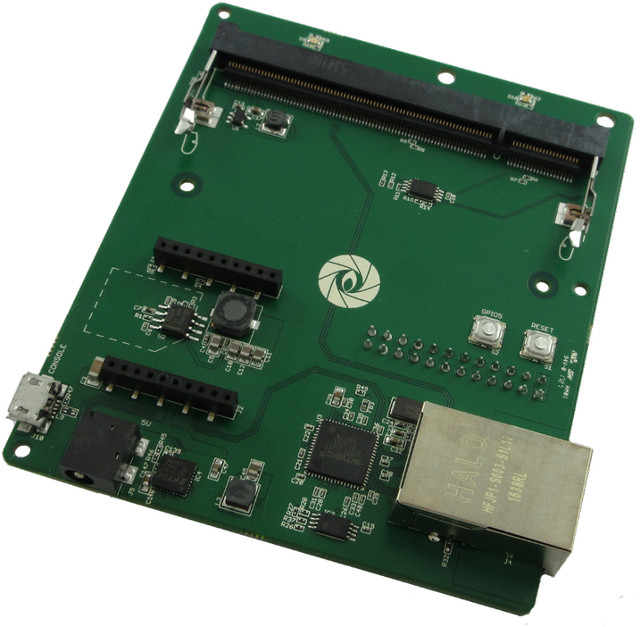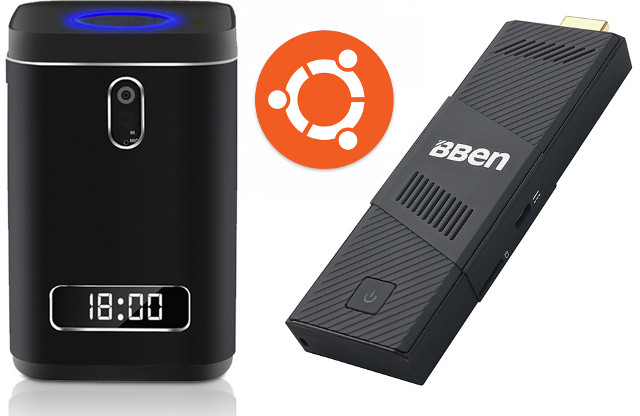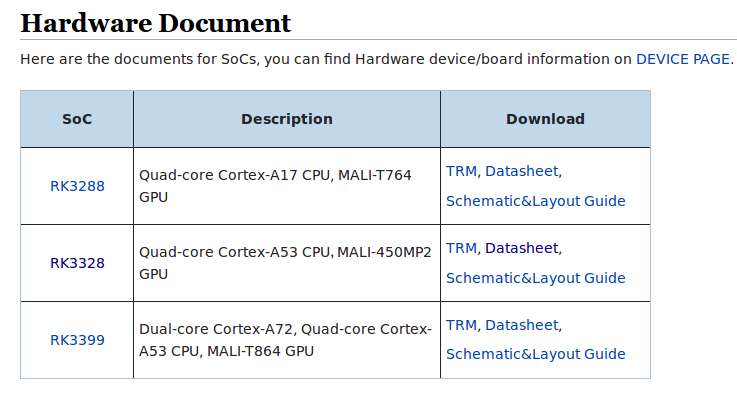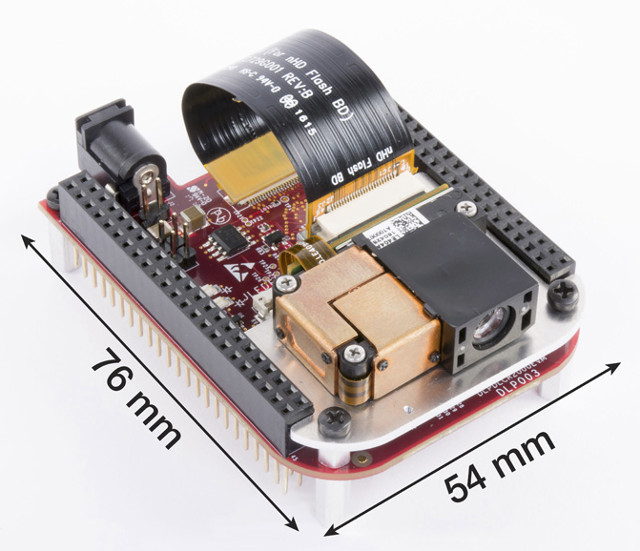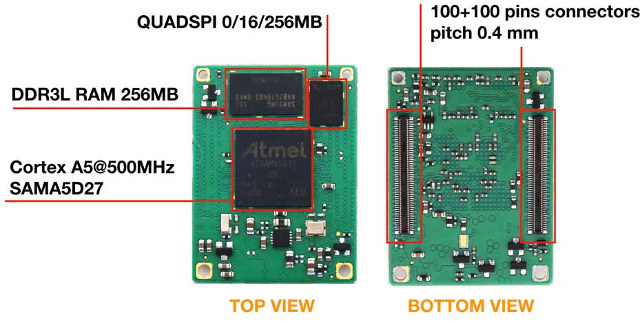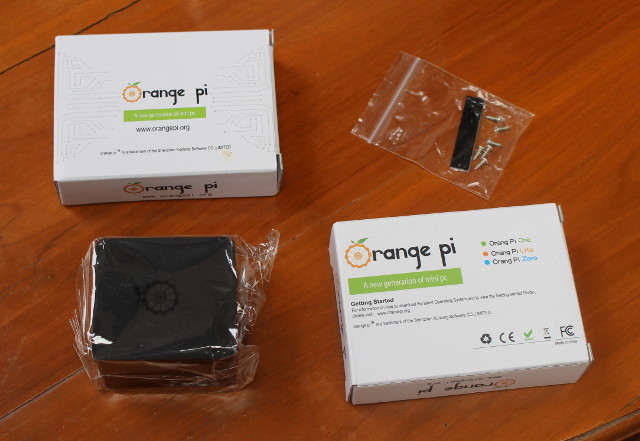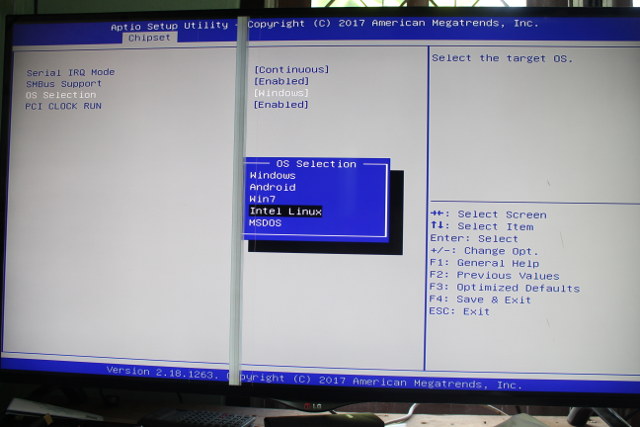Gumstix has designed Pi Conduit Gateway baseboard for both the Raspberry Pi Compute Module and RisingRF RHF0M301 LoRa gateway module, in order to create a Linux based LoRa gateway that can optionally support LTE or other cellular connectivity via NimbeLink Skywire cellular modem. Conduit Pi LoRa Gateway board specifications: 200-pin SO-DIMM connector for Raspberry Pi Compute Module / Raspberry Pi 3 Compute Module (CM3 / CM3L) Headers for RisingRF RHF0M301 LoRa Module NimbeLink Skywire 2G/3G/4G cellular modem connector Low profile 10/100M Ethernet jack (implemented via USB 2.0) USB – 1x micro USB port for debugging via an FTDI USB to TTL chip Misc – User (GPIO5) and reset buttons Power Supply – 5V via power barrel The board was designed using Geppetto, which means you should be able to customize it to your needs by modifying it the original design in a web browser, and order your brand new custom […]
Intel Mini PCs Sold with Ubuntu on Aliexpress
Many low power mini PCs equipped with Intel Bay Trail, Cherry Trail, Braswell, or Apollo Lake processors have been launched over the years, but most of those come pre-loaded with Windows 10, and many readers of this blog prefer to run a Linux distribution. It’s usually possible to install Ubuntu by yourself, but not always, and when you buy a Windows 10, this increases the price by several dollars (around $20). The ideal case would be to get such low power, low cost mini PCs pre-installed with a recent version of Ubuntu, without having to worry (too much) about hardware support, nor having to pay the “Windows tax”. MeLE used to sell Ubuntu mini PCs on Aliexpress, but sadly not anymore, so I went to Aliexpress to look for those Ubuntu mini PCs, and BBen offers three operating systems options for some of their systems with “Windows 10 Activated”, “Windows […]
Rockchip Has Setup an Official Open Source Website with Software & Hardware Documentation, Source Code
As a young engineer, I first understood the importance of good documentation thanks to an incomplete Holtek MCU datasheet that made us waste weeks of development, and the value open source software thanks to Sigma Designs’ SDK that was full of binary blobs with our applications often crashing inside those, leading to software development delays, especially since we had access to limited support. More recently, if you ever worked with the most popular Chinese processors found in ARM Linux development board, usually made by Allwinner, Amlogic, or Rockchip, you must have gone through roadblocks due to a lack of documentation and software support. So far, Allwinner is purely relying on linux-sunxi community and “leaks” of their documentation and SDKs, while Amlogic has had their “open linux” microsite for several years, but you won’t find complete documentation like technical reference manual, schematics, and part of the source code requires you to […]
DLP LightCrafter Display 2000 EVM Adds a Pico Projector to BeagleBone Black for $99
Back in 2012, Texas Instruments introduced DLP LightCrafter pico projector evaluation module powered by a TMS320DM365 ARM9 processor @ 300 MHz running embedded Linux, and selling for $599. Since then, we have seen many products including projectors based on DLP technology such as standalone tiny projectors, Windows mini PCs, Android TV boxes, tablets, an even light bulbs. However, so far I can’t remember seeing any easy way to easily integrate DLP projector with the cheap ARM Linux development boards available today. Texas Instruments has now filled that void with DLP LightCrafter Display 2000 EVM that adds a pico-projector to BeagleBone Black (or Green) based on the new 0.2″ DLP2000 DMD (Digital Mirror Device) chip. The board is comprised of two subsystems: Light engine (top) with the optics, red, green, and blue LEDs, and the 640 × 360 (nHD) DLP2000 DMD configured to deliver around 20 lumens by default (this can […]
Acme Systems Introduces RoadRunner Microchip SAMA5D21 Cortex-A5 SoM and Berta D2 Evaluation Board
Acme Systems has been designing compact and relatively inexpensive systems-on-module based on Atmel (now Microchip) processor such as their Aria G25 or Arietta G25 modules. The company has now launched RoadRunner system-on-module (SoM) powered by Microchip SAMA5D21 Cortex A5 processor, as well as the corresponding Berta D2 development kit to get started with the SoM. RoadRunner (D2) SoM specifications: SoC – Microchip SAMA5D27 ARM Cortex A5 processor @ 500MHz System Memory – 256 MB DDR3L RAM Storage – 16 MByte QSPI flash memory (optionally none, 128 MB or 256 MB) Board to Board Connectors – 2x 100-pin connectors pitch 0.4 mm with all the CPU signals Power Supply – 3.3V DC Dimensions – 40 x 30 x 3.5mm Weight- 5g Temperature Range – -40° to +85°C RoHS compliant The module is said to be “fully supported inside the Linux Kernel main stream” with “all the kernel drivers are fully open […]
How to Setup an Orange Pi Zero DIY Smart Speaker with Google Assistant SDK
A preview release of Google Assistant SDK working with Raspberry Pi 3 and other ARMv7 boards was released in May, and soon after, AIY Projects Voice Kit was offered for free with Raspberry Pi Magazine in order to a complete smart speaker kit working with RPi 3. I wanted to try it on one of FriendlyELEC or Shenzhen Xunlong Allwinner board, since all we need is audio input and output, and an Internet connection. Earlier this month, I came across Orange Pi Zero Set 6 Kit that had all I needed: Orange Pi Zero ARM Linux board, an expansion board with built-in microphone and audio output jack, and a cute and small case to neatly put everything together. Orange Pi Zero Set 6 Kit Unboxing and Assembly Shenzhen Xunlong sent me the kit so that I can try it out. The package includes two Orange Pi packages, the plastic case, […]
Tuxera FAT+ File System for Embedded Systems is Compatible with FAT32, Faster, and Supports Files up to 16TB
Tuxera has introduced FAT+, a new file system for removable storage on embedded systems that’s compatible with FAT32 but without the limitations such as the 4GB file size limit, and brings fail-safety and performance optimization. FAT+ is allegedly one of the recommended file systems by the Universal Flash Storage Association (UFSA) for the next-generation Universal Flash Storage (UFS) cards. Some of the key features of Tuxera FAT+ implementation include: Supported Operating Systems – Android, Linux, Chrome OS, Firefox OS, Tizen Hardware Architecture – ARM, ARM64, Intel x86/x86_64 or compatible, MIPS, MIPS64, PowerPC, SH4, and more Capacity Maximum volume size – 2 TiB with 512-byte sectors, 16 TiB with 4096-byte sectors Maximum allocation block size – sector size in bytes x 128 Maximum file size – 16 TiB Maximum filename length – 255 characters (16-bit) Supported sector sizes – 512, 1024, 2048, and 4096 bytes Interoperability Conforms to all Microsoft FAT […]
Running Ubuntu 16.04 on MeLE PCG03 Apo Mini PC
I completed my review of MeLE PCG03 Apo mini PC with Windows 10 about two weeks ago, and at the time when I tried Ubuntu, all I got was a black screen. MeLE said they would release an Ubuntu image for the board soon, so I did not investigate further. The company has now released Ubuntu 16.04 Desktop ISO via a link on Twitter together with (partial) instructions, and the company told me another company had worked on the image. I sent the link to Linuxium, as in the past MeLE or that other company used his work without asking. I turns out the ISO was identical to Ubuntu 16.04 Desktop ISO released in April last year.
|
1 2 |
linuxium@LINUXIUMONE:~/Downloads$ cmp -l ubuntu-16.04-desktop-amd64.iso.mele ubuntu-16.04-desktop-amd64.iso.canonical linuxium@LINUXIUMONE:~/Downloads$ |
Anyway, I still got the black screen issue using that image, and that’s because I first failed to find the option in the BIOS to change boot to Linux. When the mini […]


